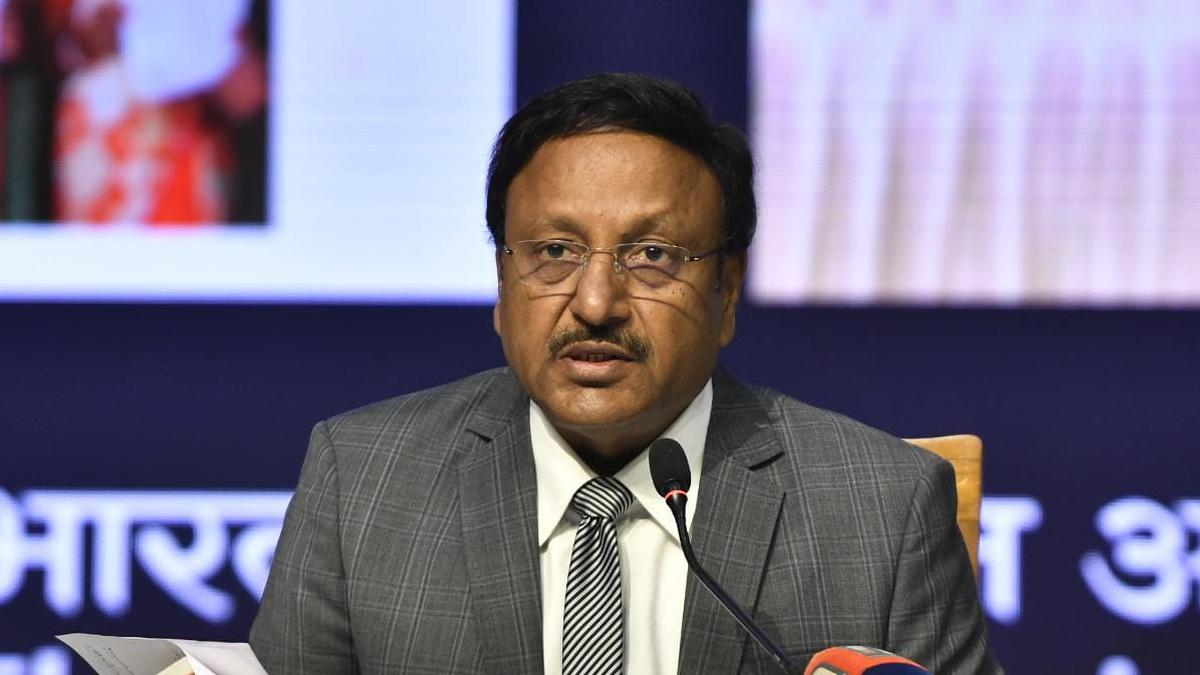New Delhi, Jan 23: Chief Election Commissioner (CEC) Rajiv Kumar has issued a warning regarding the spread of misleading narratives that compromise the integrity of electoral processes, highlighting that such narratives often emerge at critical points in the election timeline to undermine its core elements.
Kumar made these remarks during the opening of the two-day international conference titled ‘Global Election Year 2024: Reiteration of Democratic Spaces; Takeaway for EMBs’ in New Delhi, coinciding with National Voters Day celebrations.
This conference has attracted representatives from Election Management Bodies (EMBs) of around 13 countries and various international organizations.
In his keynote address, Rajiv Kumar pointed out that 2024 marks a pivotal year for EMBs, signifying a test of their commitment to democratic values amid various challenges. He stressed the importance of technology and digital innovations in improving efficiency, transparency, and voter confidence, while also noting potential threats such as cybersecurity issues and misinformation.
An Election Commission release stated that he called for EMBs to develop strategies that effectively counter these technological challenges to minimize associated risks.
Nearly 30 delegates from EMBs across 13 nations, including Bhutan, Georgia, Namibia, Uzbekistan, Sri Lanka, Indonesia, Kazakhstan, Ireland, Mauritius, the Philippines, Russia, Tunisia, and Nepal, are participating in the conference.
In addition, CEC Kumar highlighted emerging trends shaping future elections, such as the integration of AI, online voting, biometric verification, and increased global cooperation, urging attendees to leverage technological advancements to enhance electoral transparency, inclusivity, and accessibility. He emphasized the crucial role of EMBs in protecting global electoral processes while expanding their influence and reach, as noted in the official statement.
Election Commissioner Gyanesh Kumar shared insights from the Lok Sabha Elections 2024 during the first session, focusing on the scale and complexity of the electoral process.
In a session addressing the role of technology in election management, Dasho Sonam Topgay, CEC of Bhutan, expressed gratitude towards India for providing Electronic Voting Machines (EVMs) and praised their significant contributions to the efficiency of Bhutan’s electoral processes. He noted that EVMs have fostered public trust in Bhutan. Regarding Digital IDs, Topgay mentioned that Bhutan has implemented a biometric Unified National ID for voter authentication and is exploring the potential for online voting in future elections.
Representatives from various countries, including those from Uzbekistan, Sri Lanka, Mauritius, and Indonesia, discussed their electoral experiences in 2024 and expressed concerns about misinformation and fake narratives on social media undermining electoral integrity. Abdool Rahman, CEC of Mauritius, highlighted the detrimental impact of fake news on public trust in EMBs, citing incidents of fraudulent online job applications for election staff. A delegate from Namibia called for strategies to combat the escalation of fake news, while Commissioner Idhan Holik from Indonesia shared their strategy of using a dedicated WhatsApp channel to address misinformation in real time.
The first day of the conference featured various sessions on the role of technology in election management, the influence of social media on elections, promoting electoral equity for inclusive elections, and the significance of capacity building, training, and international collaboration.
The second day will culminate in a session focused on the ‘Future of Elections’ for democracies, resulting in an ‘Outcome Document/Declaration’ that reflects a shared commitment to enhancing synergy and strengthening electoral processes and democratic governance. (Agencies)


Leave a Reply